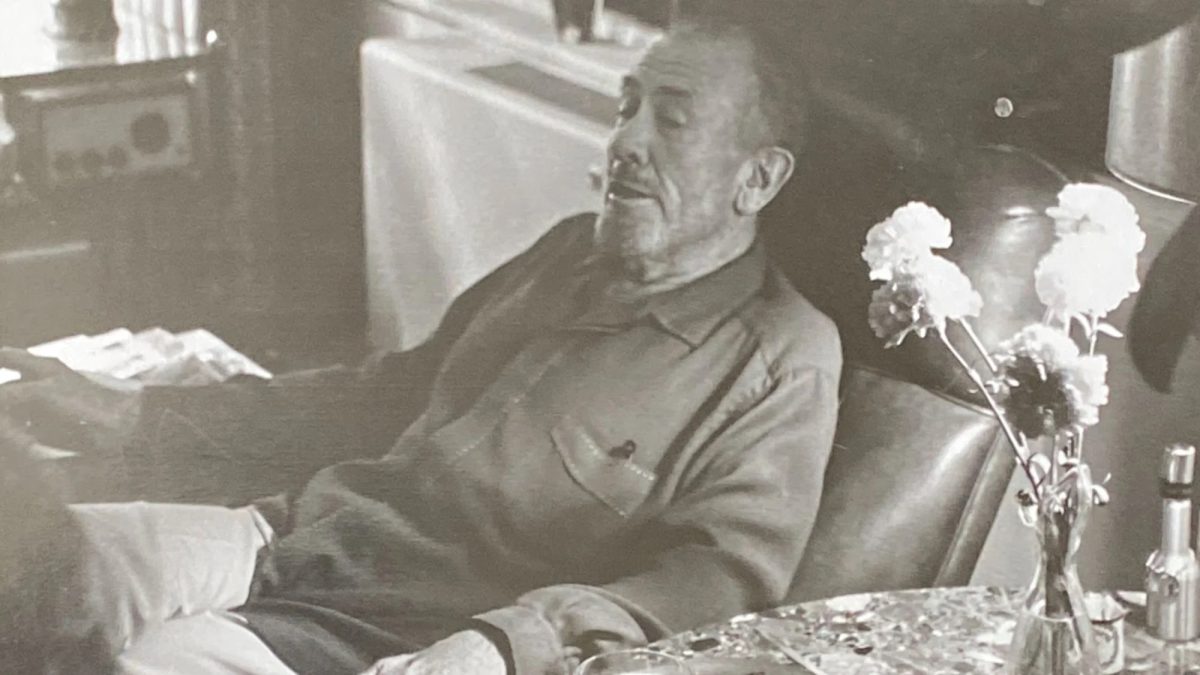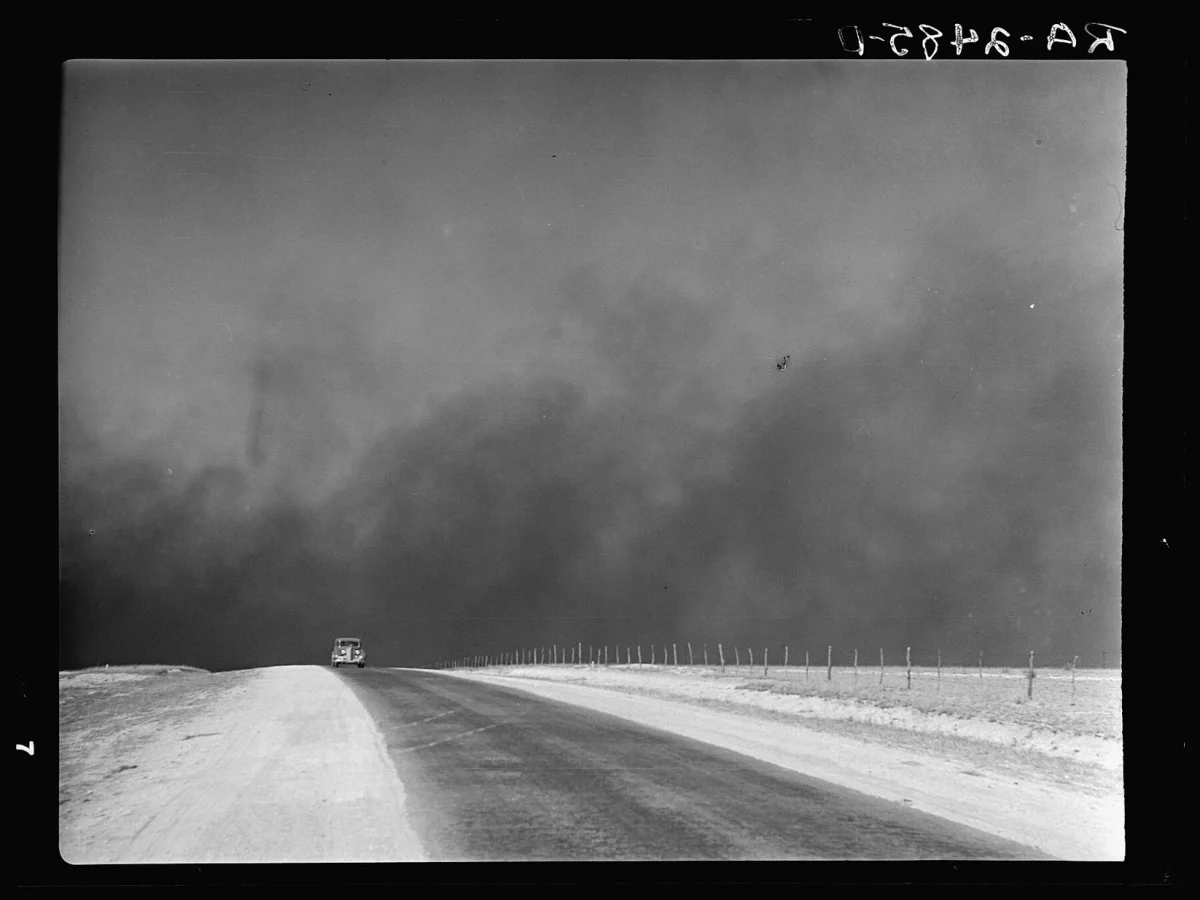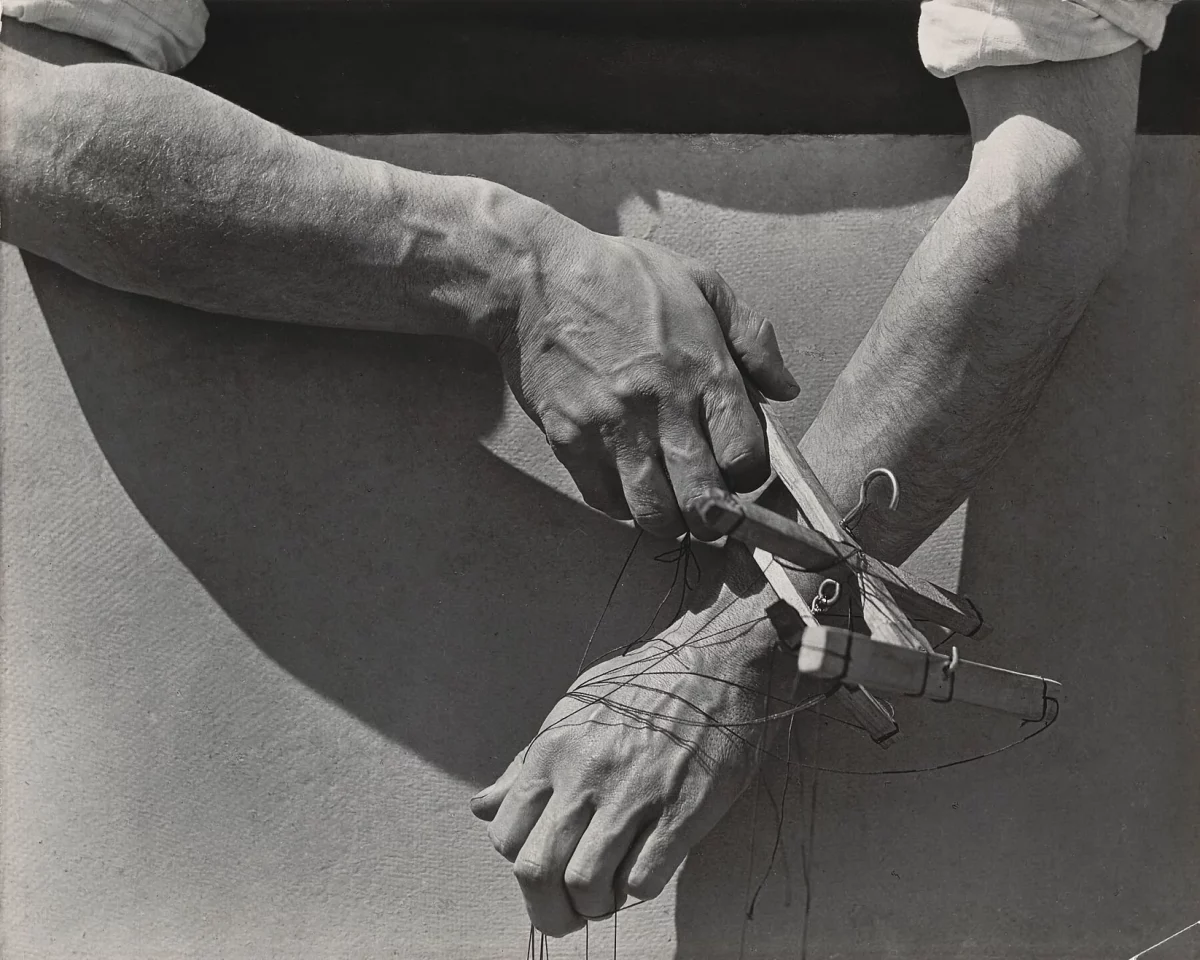“This is the longest diary I ever kept. Not a diary of course but an attempt to map the actual working days and hours of a novel. If a day is skipped it will show glaringly on this record and there will be some reason given for the slip.”
– John Steinbeck, Working Days, The Journals of The Grapes of Wrath

In Working Days: The Journals of The Grapes of Wrath, Nobel Prize winning author John Steinbeck (February 27, 1902–December 20, 1968) shares his ways of writing The Grapes of Wrath (1939), using the journal to chart the book’s progress and its effect on him.
He wrote the novel that won the Pulitzer Price in 1940 between June and October 1938, averaging 2,000 words a day in longhand. It was a labour of love born of a determination to tell the story. To get there he needed to stay focused, and Steinbeck saw routine and discipline as key to the book’s completion, noting: “If a day is skipped it will show glaringly on this record.” He urges himself on, writing on August 29: “My job is to get down to it and now. There is only one person to blame for all the pressures, and I must force him into it.”
The journal keeps him on track, becoming an outlet for when his mind wanders and distractions, worry and fear impinge upon his thoughts. He’d already published several acclaimed books and Of Mice and Men was a successful play, but appears insecure, using the journal to admonish himself and keep on track, at one point saying: “I’m not a writer; I’ve been fooling everybody, including myself.”
The first entry
May 31, 1938 – Tuesday
Here is the diary of a book and it will be interesting to see how it works out. I have tried to keep diaries before they don’t work out because of the necessity, to be honest. In matters where there is no definitive truth, I gravitate toward the opposite. Sometimes when there is a definite truth, I am revolted by its smugness and do the same. In this however, I shall try simply to keep a record of working days and the amount done in each and the success (as far as I know it) of the day. Just now the work goes well. It is nearly the first of June. That means I have seven months to do this book and I should like to take them but I imagine five will be the limit. I have never taken long actually to do the writing. I want this one to be leisurely though. That is one of the reasons for the diary.

There is a claustrophobia running throughout this book as Steinbeck withdraws into his office and becomes his own harshest critic, at one time urging himself to be better, writing: “Sometimes, I seem to do a good little piece of work, but when it is done it slides into mediocrity.”
June 30
My system of time has indeed collapsed. Today – the last day of June I have finished in one month Book One, the background of this novel. One general chapter today and it will be a short one, too. The empty and deserted houses. Yesterday the work was short and I went over the whole of the book in my head – fixed on that last scene, huge and symbolic, toward which the whole story moves. And that was a good thing, for it was a reunderstanding of the dignity of the effort and the mightiness of the theme. I felt very small and inadequate and incapable but I grew again to love the story which is so much greater than I am. To love and admire the people who are so much stronger and purer and braver than I am.
Perhaps we should not read too much into these diary entries, and Steinbeck’s journal is just another of what he called “those interminable notebooks that serves no purpose but to warm me up and sometimes to cool me down”? But this more. Steinbeck was not afraid to kill his creations, as he had with a forerunner for The Grapes of Wrath.
In September 1936 Steinbeck saw migrant workers and lettuce growers come to blows in California. “There are riots in Salinas and killings in the streets of that dear little town where I was born,” he told his friend George Albee in a letter. So in 1938 he set to work on the manuscript L’Affaire Lettuceberg. He called the finished a “bad book”, explaining why he’d failed: “I had got smart and cocky you see. I had forgotten that I hadn’t learned to write books, that I will never learn to write them. A book must be a life that lives all of itself and this one doesn’t do that. And so the journal becomes more than an aside. it is Steinbeck remaining true to his story and the people he wanted to lift up.
June 9
With luck, I should be finished with this first draft in October sometime and then God knows what I’ll do. I’ll surely be ready for a rest. Sometimes now I get a bit tired just with the multitude of this story but the movement is so fascinating that I don’t stay tired. … This must be a good book. It simply must. I haven’t any choice. It must be far and away the best thing I have ever attempted – slow but sure, piling detail on detail until a picture and an experience emerge. Until the whole throbbing thing emerges. And I can do it. I feel very strong to do it.

Heavy Black Clouds of Dust Rising over the Texas Panhandle, by Arthur Rothstein – 1936 (buy the print)
The end
October 26
Today should be a day of joy because I could finish today – just the walk to the barn, the new people, and the ending that’s all. But I seem to have contracted an influenza of the stomach or something. Anyway, I’m so dizzy I can hardly see the page. This makes it difficult to work. On the other hand, it might get worse. I might be in for a siege. Can’t afford to take that chance. I must go on. If I can finish today I don’t much care what happens afterwards. Wish -if it was inevitable, that could have held off one more day. My fault really for having muffed on Monday oddly enough. I feel better – sitting here. I wish I were done. Best way is to just get down to the lines. I wonder if this flu could be simple and complete exhaustion. I don’t know. But I do know that I’ll have to start at it now and, of course, anything I do will be that much nearer the end.
Finished this day – and hope to God it’s good.
Steinbeck asked that the journal not be published during his lifetime and that it be made available to his children if they should ever want “to look behind the myth and hearsay and flattery and slander a disappeared man becomes and to know to some extent what manner of man their father was.”
When it came time to write East of Eden, Steinbeck used letters to his editor Pascal Covici instead of writing to himself. It was his way, he said, of “getting my mental arm in shape to pitch a good game.” Steinbeck’s letters were written on the left-hand pages of a notebook in which the facing pages became the bones for East of Eden.
Via: LitHub, AustinKleon, The Examined Life
Would you like to support Flashbak?
Please consider making a donation to our site. We don't want to rely on ads to bring you the best of visual culture. You can also support us by signing up to our Mailing List. And you can also follow us on Facebook, Instagram and Twitter. For great art and culture delivered to your door, visit our shop.











